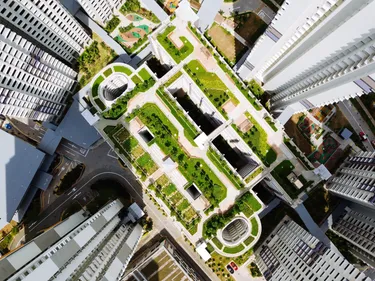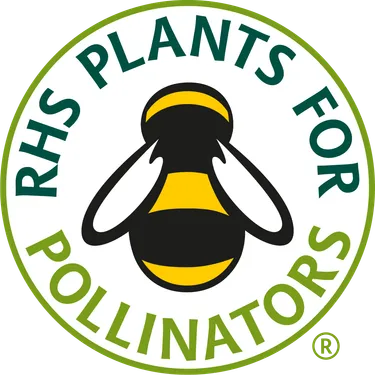
Green Roofs
Green Roofs for New Build and Refurbishment Projects
Green roofs are set to play a big part in the future of sustainable architecture. Also known as living roofs, they provide a huge number of environmental and social benefits.
Our green roof systems are designed and engineered to accommodate the most varied ecological and environmental requirements. We encourage the use of flowering plants that are packed with nectar and pollen so that we provide a rich, biodiverse mix for pollinating insects, we work to the guidelines set out by the RHS Plants for Pollinators
We’re on a mission to improve the roofscape and transform the world above our heads.
Considerations
- The roof must be capable of supporting the design load
- There must be adequate provision to drain excess rainwater
- Safe access for maintenance must be included in the design
- The roof waterproofing must be robust and long lasting
- Anti-root / root resistant membranes must be considered
- Outlets must be capable of inspection
Green roofs are generally categorised as Extensive or Intensive, however we also offer Biodiverse (Brown) systems that promote and increase local biodiversity, as well as versatile Modular systems to aid installation. Read more about our different green roofs below.
Green Roof Legislation
Our combination of horticultural expertise and long term system performance ensures total compliance with all local, national and project specific environmental, biodiversity and attenuation criteria.
There is currently no UK legislation demanding roof greening, however, individual cities are now advocating green roofs. The London Plan, Chapter 5: London’s Response To Climate Change: Policy 5.11 states; Major development proposals should be designed to include roof, wall and site planting, especially green roofs and walls where feasible, to deliver as many of the following objectives as possible:
- Adaptation to climate change (ie aiding cooling)
- Sustainable urban drainage
- Mitigation of climate change (ie aiding energy efficiency)
- Enhancement of biodiversity
- Accessible roof space
- Improvements to appearance and resilience of the building
- Growing food
Local Development Frameworks (LDF’s) within London Boroughs are also encouraged to develop more detailed policies and proposals to support the development of green roofs and the greening of development sites particularly in smaller developments, renovations and extensions.
Furthermore, Axter living roof systems will, with certain conditions, automatically be awarded one credit under The Building Research Establishment Environmental Assessment Method (BREEAM) sub-sections LE 03 Mitigating Ecological Impact, LE 04 Enhancing Site Ecology, LE 05 Long Term Impact on Biodiversity and SUR1 Surface Water Management.
Green Roof Installation
Both warm and inverted roofs can be employed for all Axter green roof types. However, extensive roofs, mainly designed for biodiversity, would normally be installed on a warm roof Cityflor® system assembly. Intensive roofs, mainly designed for amenity value, would normally be installed on an inverted roof Wilotekt®-Plus or Force® Dalle system assembly.
Installation of Axter green roof systems is carried out by accredited Axtershield Installers. All system components are specified and installed to ensure compatibility, single source responsibility, and compliance with Axter recommendations and the Green Roof Organisation (GRO) Code.
Guarantees
All Axter green roof systems achieve comprehensive guarantees. The guarantee length and type will be dependent on the waterproofing system selected and the variety of green roof finish chosen.
Green Roof Benefits
- Increases urban biodiversity and wildlife conservation through habitat provision
- Improves rainwater management by absorbing rainfall to reduce flooding and reducing storm water runoff, as part of a sustainable drainage system (SuDS) strategy
- Improves air and water quality
- Lowers urban air pollution
- Lessens the Urban Heat Island Effect (UHIE), reducing ambient temperatures
- Mitigates the effects of climate change
- Dramatically increases life expectancy of roof waterproofing
- Reduces energy consumption of the building
- Reduces sound transfer
- Grants access to green space, providing amenity for residents who may not have access to private gardens
- Provides the opportunity to grow fruit and veg
- Aesthetically pleasing, with a wide variety of plant options
- Improves general well-being

To chat with us about a specific project, or for general advice and quotes, please send us an email or give us a call. We’d love to hear from you!


